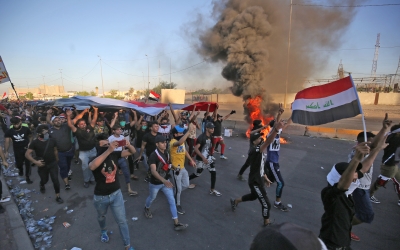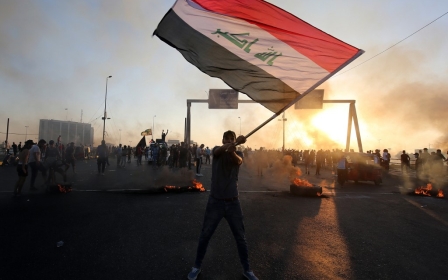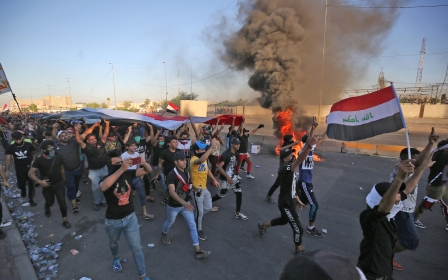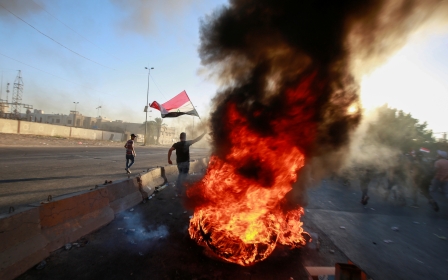Hashd al-Shaabi vows to stop 'coup' against Iraqi government as protests continue
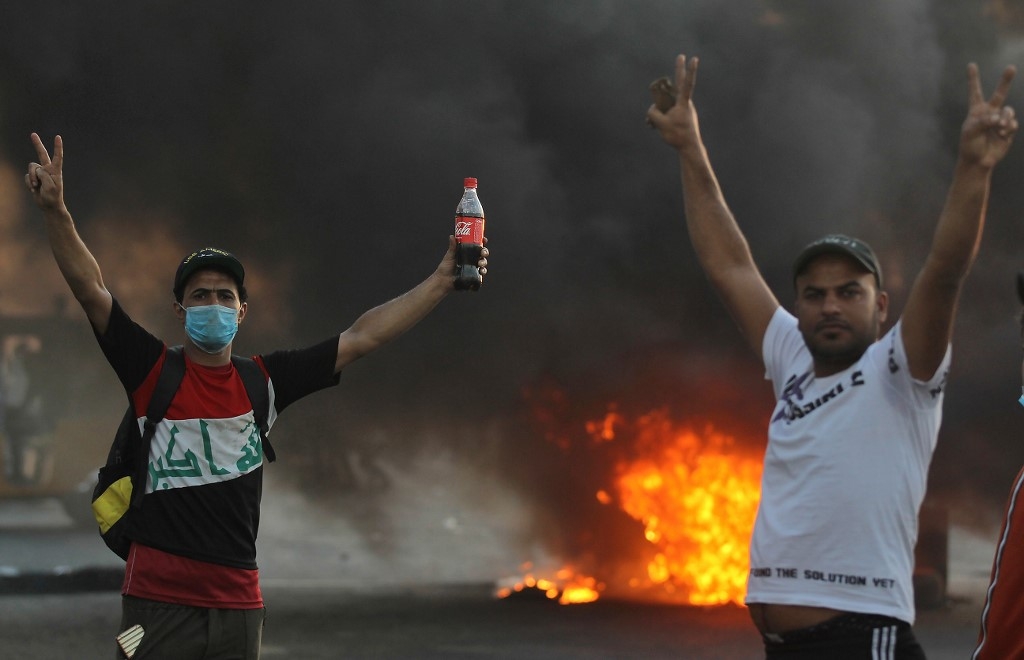
Iraq's powerful Hashed al-Shaabi (PMU) paramilitary force said it was ready to stop a "coup d'etat or rebellion" against the Iraqi government as anti-corruption protests continue to rock the country.
Overnight, at least 15 people were killed in Baghdad's Sadr City district during clashes between security forces and protesters, according to the Reuters news agency.
Demonstrations, which began on Tuesday with initial calls for an end to corruption and youth unemployment, have since turned violent and morphed into demands for the removal of the government.
The arrival of the violence in Baghdad's Sadr City on Sunday night poses a new security challenge for the authorities.
Unrest is historically difficult to put down in the volatile district, where about a third of the capital's 8 million people live in narrow alleys, many with little access to electricity, water and jobs.
New MEE newsletter: Jerusalem Dispatch
Sign up to get the latest insights and analysis on Israel-Palestine, alongside Turkey Unpacked and other MEE newsletters
The military said early on Monday it was withdrawing from Sadr City and handing over to police in an apparent effort to de-escalate tension there.
According the the interior ministry, 110 Iraqis have been killed as security forces have cracked down on the protests.
Speaking to reporters on Monday, Faleh al-Fayyadh, who heads the Iranian-backed PMU, said he wished for an "end to corruption, not the fall of the regime".
"We know who stands behind these protests. The plan to bring down the regime has failed," Fayyadh told reporters in Baghdad.
The PMU, which played a vital part in the defeat of the Islamic State group in Iraq, is supposedly in the process of regularising its units into the Iraqi army. However, the process is uncertain, with the militias traditionally taking much direction and support from Tehran.
Fayyadh's statement echoed comments made by Iran's Supreme Leader Ayatollah Ali Khamenei on Monday, in which he accused "enemies" of attempting to drive a wedge between Tehran and Baghdad.
The leaderless protests are the biggest security and political challenge for Prime Minister Adel Abdul Mahdi’s government since it took power a year ago.
In a bid to quell protests, Baghdad has announced a series of reforms to create jobs, boost social welfare and oust corrupt officials.
The Iraqi government has also imposed a blackout by blocking internet access across the country. Local media outlets say their offices have been raided.
Live ammunition against protesters
Abdul Mahdi on Saturday denied claims that his forces had shot live ammunition directly at protesters and said its use of force was during "strict" instances of self-defence.
But on Monday, Iraq's military admitted for the first time that it used "excessive force" in the deadly protests.
"Excessive force outside the rules of engagement was used and we have begun to hold accountable those commanding officers who carried out these wrong acts," the military said, according to AFP news agency.
The military said Abdul Mahdi had ordered those forces to be replaced with federal police units and the intelligence services to open an investigation into the incident.
The interior ministry said that 6,107 protesters had been wounded during protests in Baghdad and across the south of the country.
Iraq is ranked as the world's 12th most corrupt country, according to Transparency International's Corruption Perceptions Index.
According to official figures, since 2004 almost $450bn of public funds have vanished into the pockets of politicians and businessmen.
In addition, youth unemployment in Iraq is running at around 25 percent, according to the World Bank, in a country where the vast majority of the population is under 30.
Middle East Eye delivers independent and unrivalled coverage and analysis of the Middle East, North Africa and beyond. To learn more about republishing this content and the associated fees, please fill out this form. More about MEE can be found here.


